How Safe Is Japan?
The word "Japan" brings to mind many things: high-tech, sushi, anime, samurai, and cherry blossoms. It is one of the most intriguing countries in...
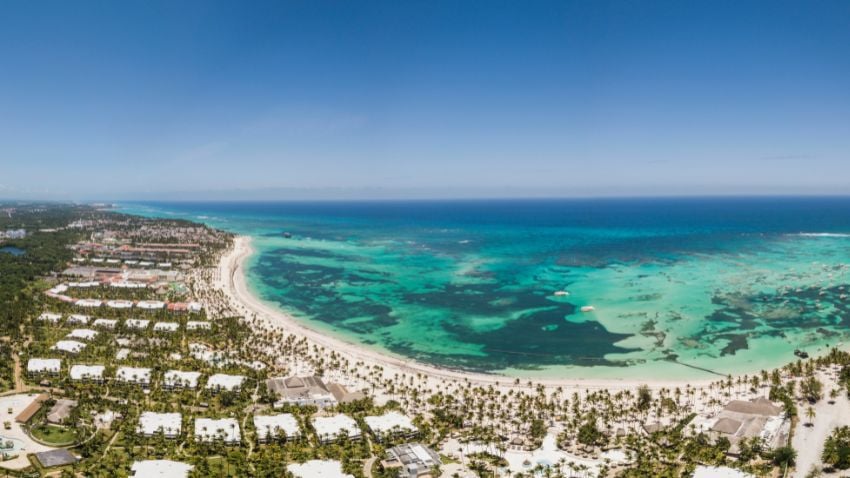
7 min read
The Dominican Republic is the Caribbean's second largest and most diversified nation, located only two hours south of Miami, four hours from New York, and eight hours from most European capitals. The Dominican Republic is a location unlike any other, with breathtaking natural beauty, interesting history, and complex culture.
The lush tropical island paradise, surrounded by the Atlantic Ocean on the north and the Caribbean Sea on the south, boasts nearly 1,000 miles (1,609 km) of coastline, 250 miles (402 km) of the world's top beaches, magnificent resorts and hotels, and a variety of sports, recreation, and entertainment option. Here, you can dance to the pulse-pounding thrill of the merengue, rejuvenate in the luxurious and diverse accommodations, explore ancient relics from centuries past, indulge in delectable Dominican gastronomy, or enjoy ecotourism adventures in the magnificent national parks, mountain ranges, rivers, and beaches.
Thanks to its gorgeous natural surroundings, romantic waterfalls, magnificent coastlines, and exquisite lodgings, the Dominican Republic is undoubtedly a favourite location for expats. Many world-class resorts and hotels cater to meeting and incentive groups that visit the Dominican Republic in search of great, courteous service and innovative conference locations.
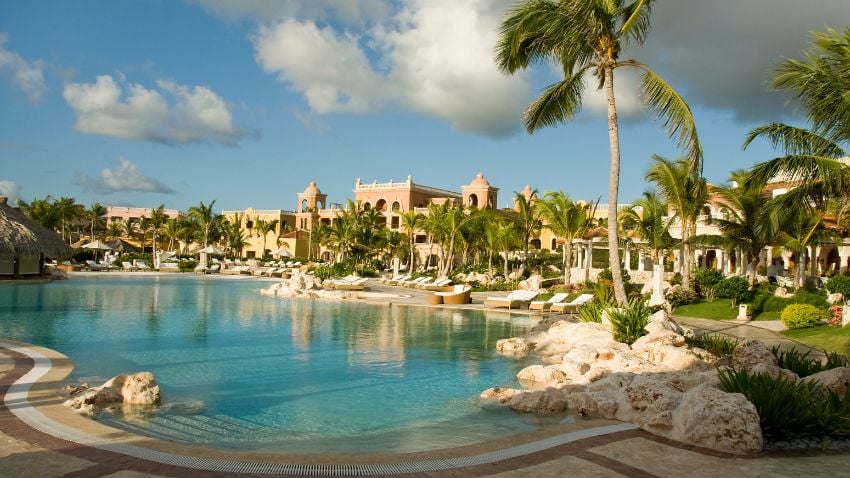
Sanctuary Resort, Punta Cana, Dominican Republic
Although the Dominicans share religious, linguistic, and historical traditions, their society remains fractured and autonomous. As a result, the Dominican people's everyday experiences differ based on their financial class, race, geographical region, and other aspects.
Dominican culture evolved by integrating European, African, and Taíno customs and practices. The Dominican Republic celebrates Carnival every February with parades, street dancing, gourmet festivals, and music. There are other festivities the week before Easter Sunday. The week is jam-packed with parades, beauty pageants, and other celebrations in every town nationwide.
The Dominican Republic has a wide range of religious activities, with Catholicism being the most prevalent faith. The country's national language is Spanish, so it would be good to brush up on your skills before visiting the island.
Related content: Life On The Caribbean Island Of Anguilla
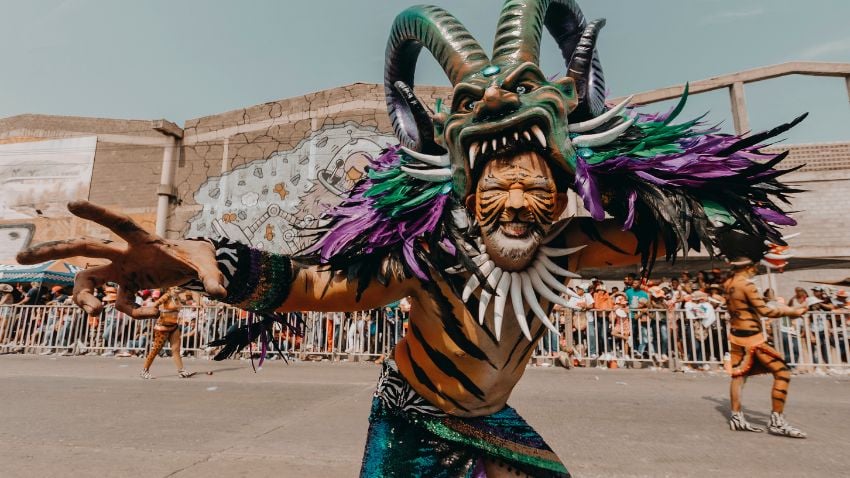
Be prepared to experience much of the Dominican Republic's culture and folklore during the Carnival.
One of the joys of daily life is the access to a diverse array of cuisines that reflect the country's rich cultural tapestry. From mouthwatering local delicacies to international fare, restaurants offer a delightful journey for the taste buds. Whether it's savouring mangu for breakfast or enjoying mofongo for dinner, Dominican cuisine is a constant celebration of flavours.
The Dominican Republic food is inspired by a combination of Spanish, Taíno, and African flavours. You can find everything from soups and stews to street-side fried appetizers and sweet coconut sweets. Aside from the traditional Caribbean rice and beans dish, the Dominican Republic has its delicacies. You can get acquainted with a few Dominican mainstays, from table to roadside.
Dominican arts & crafts represent the country's history and diverse population. Taíno, Spanish, and African legacies have persisted in several areas throughout the nation. The Taíno, who were skilled craftspeople, left behind tools and artifacts influenced by mythology, rituals, and daily life. You'll see more sophisticated versions of the water gourds they used to use, manufactured from the higüero tree and occasionally coconut.
The African and Caribbean influences may be seen in vibrant paintings of everyday village and island life. The greatest examples can be seen in galleries. You can also find these influences in wooden products, such as little mortar and pestles made of guayacan, which can be seen in practically every Dominican house and souvenir store.
Jewelry is prominent since two valuable stones, amber and larimar, are extracted straight from the Dominican Republic. The faceless dolls are the most iconic Dominican handicrafts; most typically fashioned of porcelain, these beautifully clothed miniatures lack facial characteristics to highlight that Dominicans are of mixed race and accept their unique ancestry.
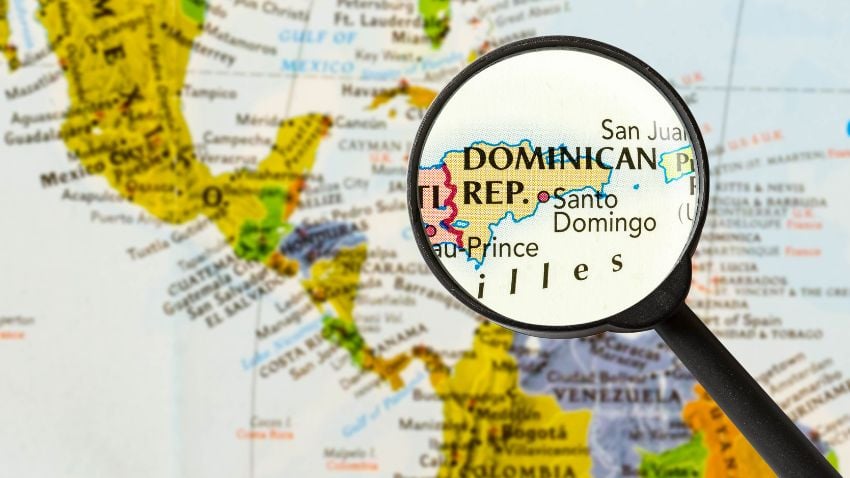
The Dominican Republic on a Map.
Music and dance are important aspects of daily life in the Dominican Republic. Dominican rhythms will resound from corner shops to local clubs while people dance inside or even outside in parks and public places, whether you find yourself in Santo Domingo, the epicentre of nightlife and live performances, or a little community in the country's rural areas. Every Friday and Saturday night in Santo Domingo, Plaza de España, you can enjoy folkloric music with traditional Dominican-style clothed performers dancing. On Sundays, you can dance the night away to a live merengue band beside the ruins of San Francisco. Bar hop and party in downtown Santiago, or explore the "drink" bars of Puerto Plata, where merengue and bachata reign supreme. Cabarete's beach nightlife takes on new meaning, as you may dance the night away at various clubs along the coastline. The opulent nightclubs and marinas in Punta Cana are equally popular, blaring house music or providing refined wine bars.
Related content: What Is Life Like In Curaçao As An Expat
Baseball is the most popular sport in the Dominican Republic. For Dominicans, "pelota" is an eternal desire, a love of nation and solidarity. Baseball also represents a desire and hope for a brighter future for the younger generation, with the prospect of becoming one of the world's great Dominican baseball stars. It worked for Sammy Sosa, Pedro Martinez, and David Ortiz, among many others.
Apart from following their favourite players during Major League Baseball (MLB) games, each Dominican has a particular club they root for throughout the Dominican baseball season. The baseball season in the Dominican Republic runs from mid-October to late January, with six clubs participating at major professional baseball facilities around the nation. If you're in the Dominican Republic during these months, add this unique event to your itinerary.
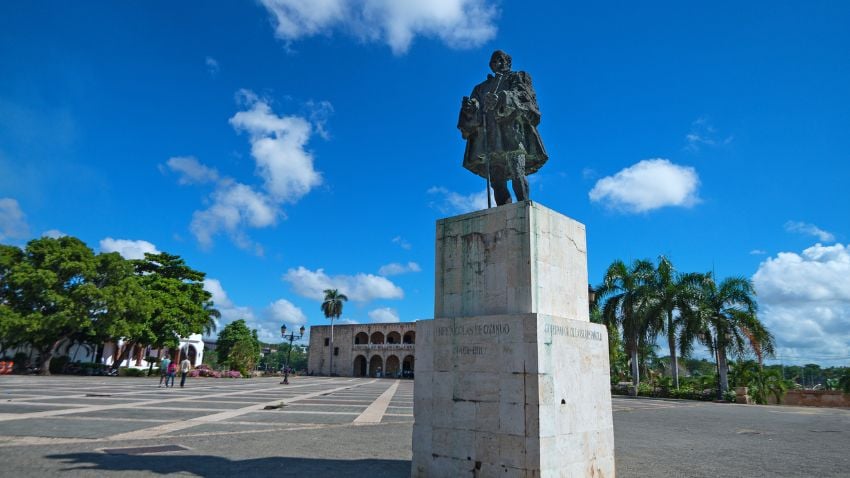
Plaza de Espana in Santo Domingo, Dominican Republic
Living in the Dominican Republic can be a great choice. The country is breathtaking. Most people dream of world-class white sand beaches, warm, clear sea and ocean waters ranging in colours from vivid turquoise to deep blue, with a background of lush, green, tropical mountains. This dream is a description of the Dominican Republic summed up. With these characteristics, it isn’t surprising to find out that you have many activities and experiences there, like diving, snorkelling, fishing, surfing, and sailing, as well as land-based activities like hiking and zip lining.
As the Caribbean's most visited location, several high-quality facilities are available to fulfill your interests and passions. The nation is home to some of the area's top golf courses and marinas. Whether you enjoy freshly caught seafood in a fisherman's village in the quiet coastal town of Las Terrenas, a fine dining establishment in the capital city of Santo Domingo, or a lively beach bar in vibrant tourism mecca Punta Cana, the Dominican Republic has it all.
The vibrant atmosphere is not only fueled by the locals but also by the presence of foreigners who have chosen to make this island paradise their home. Interacting with people from different countries adds a global touch to the community, creating a melting pot of cultures and perspectives.
For families, the Dominican Republic provides a unique blend of opportunities and a close-knit community feel. The process of assimilating into Dominican culture is both enriching and rewarding. The locals are known for their warmth and hospitality, making it easy for newcomers to feel at home.
Tourists, drawn by the allure of pristine beaches and lush landscapes, contribute to the dynamic energy of the country. The exchange of information between locals and visitors creates a dynamic cultural exchange, fostering a sense of global interconnectedness.
Living in the country is not just about the daily grind; it's about embracing the fun that comes with the laid-back lifestyle. Whether it's a spontaneous beach day, exploring the rich historical sites, or dancing to the infectious rhythms of merengue and bachata, there's always something exciting to do.
Related content: The Basics Of How To Get A Second Passport Or A Second Residency.
The Dominican Republic welcomes foreign nationals wishing to relocate to the nation. You must first apply for a temporary residency visa to enter the country. After one year, you may seek permanent residence. Successful candidates will be issued a permanent residency card valid for two years and may renew it for another two to ten years. Individuals wishing to retire in the nation may apply for a fast-track procedure through residency by investment.
-1.jpg?width=850&name=Articles%20(850%20%C3%97%20478%20px)-1.jpg)
Los Haitises National Park, Bird Island, Dominican Republic
The cost of living in the Dominican Republic, as anywhere, varies greatly depending on your lifestyle. Prices for daily living and entertainment are often cheaper than in other regions of the Caribbean, and it is possible to live quite well on a lesser budget than you may have at home.
The cost of housing will vary depending on where you choose to reside, with tourist areas and big cities costing substantially more than rural Dominican villages. The closer you are to the sea inside the tourist districts, the more costly it gets. Rents may range from roughly $250 USD per month for a one-bedroom apartment to $3,000 USD or $4,000 USD per month for a home in a gated neighbourhood. For $250 USD, you may rent a three-bedroom, two-bathroom home in a Dominican town in the country's interior.
If you want to purchase a house, properties in the city and tourist destinations are more costly than homes in rural areas. Once inside your house, the power supply is unstable, so you should have a backup system, such as a generator, an inverter, or both. These may be rather costly to put up. Given the instability of the electrical grid, practically everyone cooks using gas, which is in tanks you can fill at a nearby filling station. $20 USD of gas will last for around 2-3 months.
Related content: Applying For A Digital Nomad Visa In Bermuda
The Dominican Republic's healthcare quality varies from hospital to hospital. Public health facilities provide fewer services than private institutions, often offering a broader choice of services, better care, and well-trained personnel. In Santo Domingo, institutions such as the Hospital General de la Plaza de la Salud provide the highest level of treatment. Punta Cana has many private hospitals and clinics, including the Centro Medico Punta Cana private hospital, the International Medical Group and Hospiten Bavaro in Punta Cana, and Punta Cana Doctors in Punta Cana Village, as well as a private international hospital in Las Terrenas. However, private medical treatment may be expensive, so be sure you have appropriate private health insurance. Foreign residents may get medical insurance from a local or an international supplier. Several solutions provide varying levels of coverage, so be sure to investigate all of your possibilities thoroughly.
The Dominican Republic is a dreamland for touring and retiring. It offers all the beauty of any Caribbean island while giving you more for your dollars. It has many cultural attractions to keep you busy year-round and many places to visit and explore. It has many different foods for you to enjoy, and most are very flavorful. It is just a wonderful land with a rich and exciting culture and much to learn from living and exploring the Dominican Republic.
Living in the Dominican Republic is a constant celebration of life, a fusion of cultures, and a daily embrace of the opportunities that come with residing in one of the most enchanting corners of the Caribbean.
If you want the best intel from the expat world, including profitable offshore opportunities, little-known tax-saving strategies, and hard-won insights on immigration, passports, and Plan-B residencies, all delivered to your inbox every single week, then join our daily correspondence, EMS Pulse®. Currently enjoyed by over 84,000 expats and expat-hopefuls worldwide. Fill in the form below to join our newsletter free:

Written by Mikkel Thorup
Mikkel Thorup is the world’s most sought-after expat consultant. He focuses on helping high-net-worth private clients to legally mitigate tax liabilities, obtain a second residency and citizenship, and assemble a portfolio of foreign investments including international real estate, timber plantations, agricultural land and other hard-money tangible assets. Mikkel is the Founder and CEO at Expat Money®, a private consulting firm started in 2017. He hosts the popular weekly podcast, the Expat Money Show, and wrote the definitive #1-Best Selling book Expat Secrets - How To Pay Zero Taxes, Live Overseas And Make Giant Piles Of Money, and his second book: Expats Guide On Moving To Mexico.
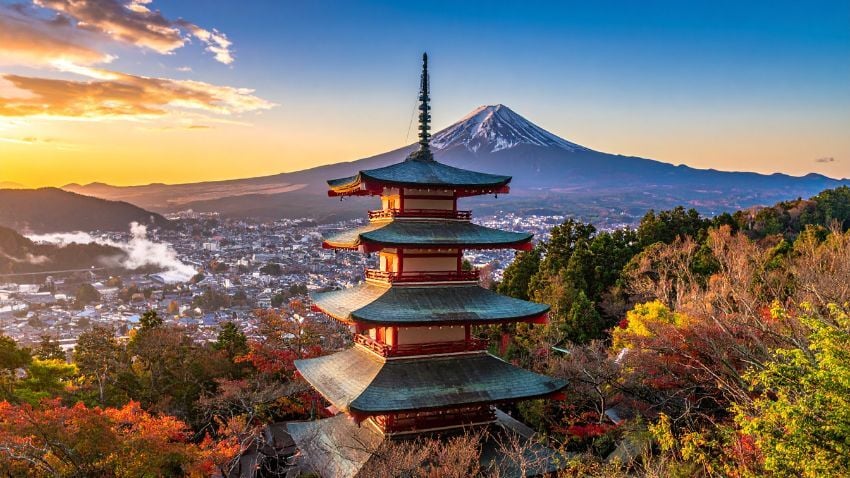
The word "Japan" brings to mind many things: high-tech, sushi, anime, samurai, and cherry blossoms. It is one of the most intriguing countries in...
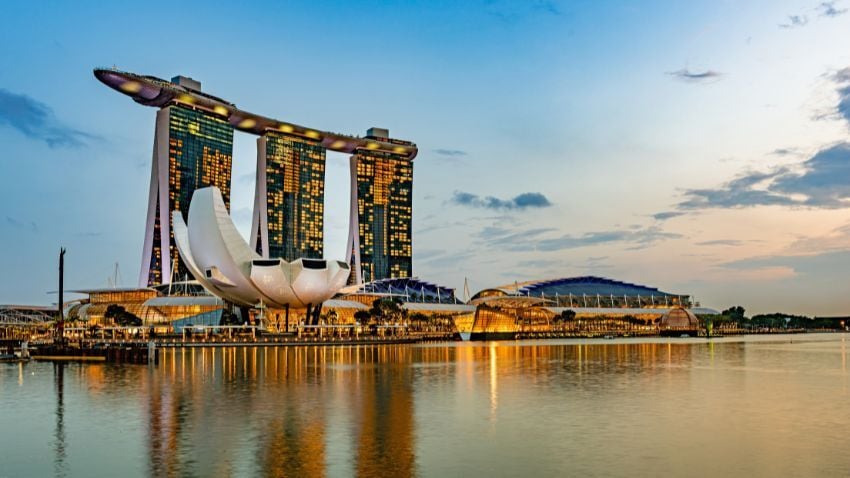
Singapore is often described as a city that works, and it totally deserves its reputation. This small island nation in Southeast Asia has built one...

Panama’s geographic size is modest, but its global relevance is not. The country connects two oceans and two continents, operates on a dollarized...